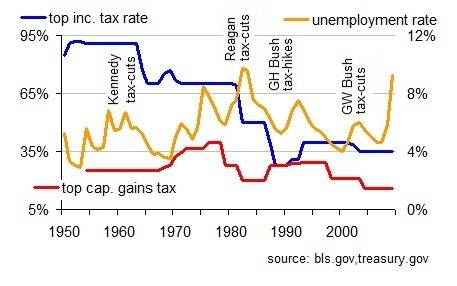Publius1787
Gold Member
- Jan 11, 2011
- 6,211
- 678
- 190
Unemployment benefits puts money in the hands of people who will spend it which creates a need for more jobs. It may or may not counteract the forces pushing the economy down, but without the benefits consumer spending is less which makes things worse.The economy is always being pushed up by positive forces and down by negative forces. Unemployment benefits are a positive force because it increases consumer spending. The net effect depends on the amount of negative forces pushing the economy down such as falling real estate prices.
So taking from the productive and giving to democrats create jobs?
But wait?
Real Unemployment is up
Poverty is up
Foreclosures are up
the economy is dying
but more welfare maybe will stir things up
Those transfer payments do stimulate the economy just as private spending does. However, the money multiplyer is lower when the government does it, it destroys private investment, and businesses who need loans are crowded out by government borrowing as the money demanded increases the interest rates. Right now the Obama administration is trying to increase inflation as fast as possible to incentivise people to take out their money and spend it as the interest on many of their investments is bairley beating inflation. What this does is make everyone poorer and robs job creating industries of money to expand their businesses and create jobs. Furthermore, democrats keep forgetting that if there is no profit there are no wages and thus no jobs. They are trying to prop up failing unionised industries by monopolising stimulous money to favored unions and refusing to let the people spend their money naturaly and let the free market choose who fails. Worst of all it is official monetary policy that if we arent spending our money fast enough the government will spend it for us. How does any of this stimulate the economy? Shure the economy is stimulated when a welfare recipiant spends a dollar. But your not thinking about what the taxpayer who lost that dollar was going to do with it, the effects of borrowing that dollar, or the effect of printing that dollar. Those effects wipe the stimulous and transfer payments of any benefit we might gain as an economy and then some.
